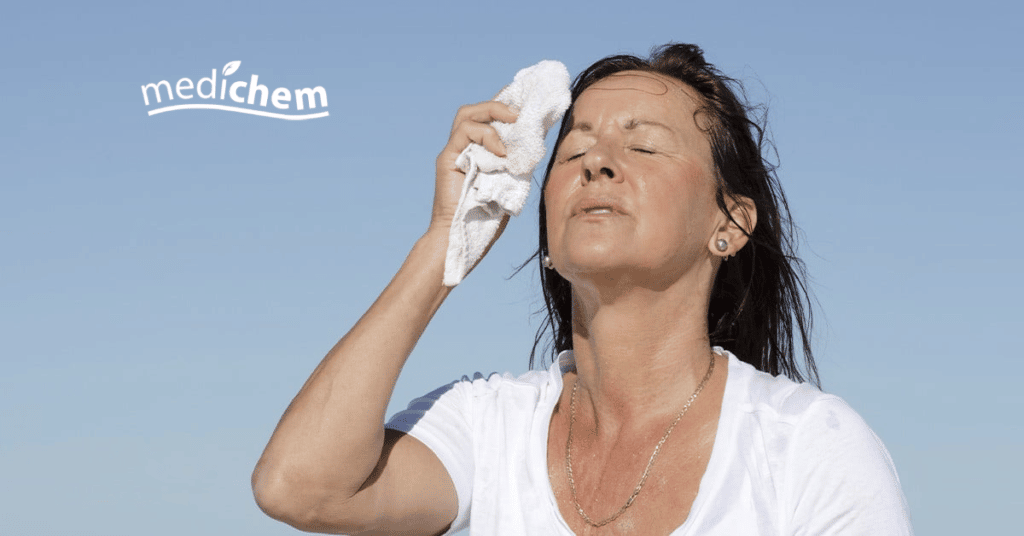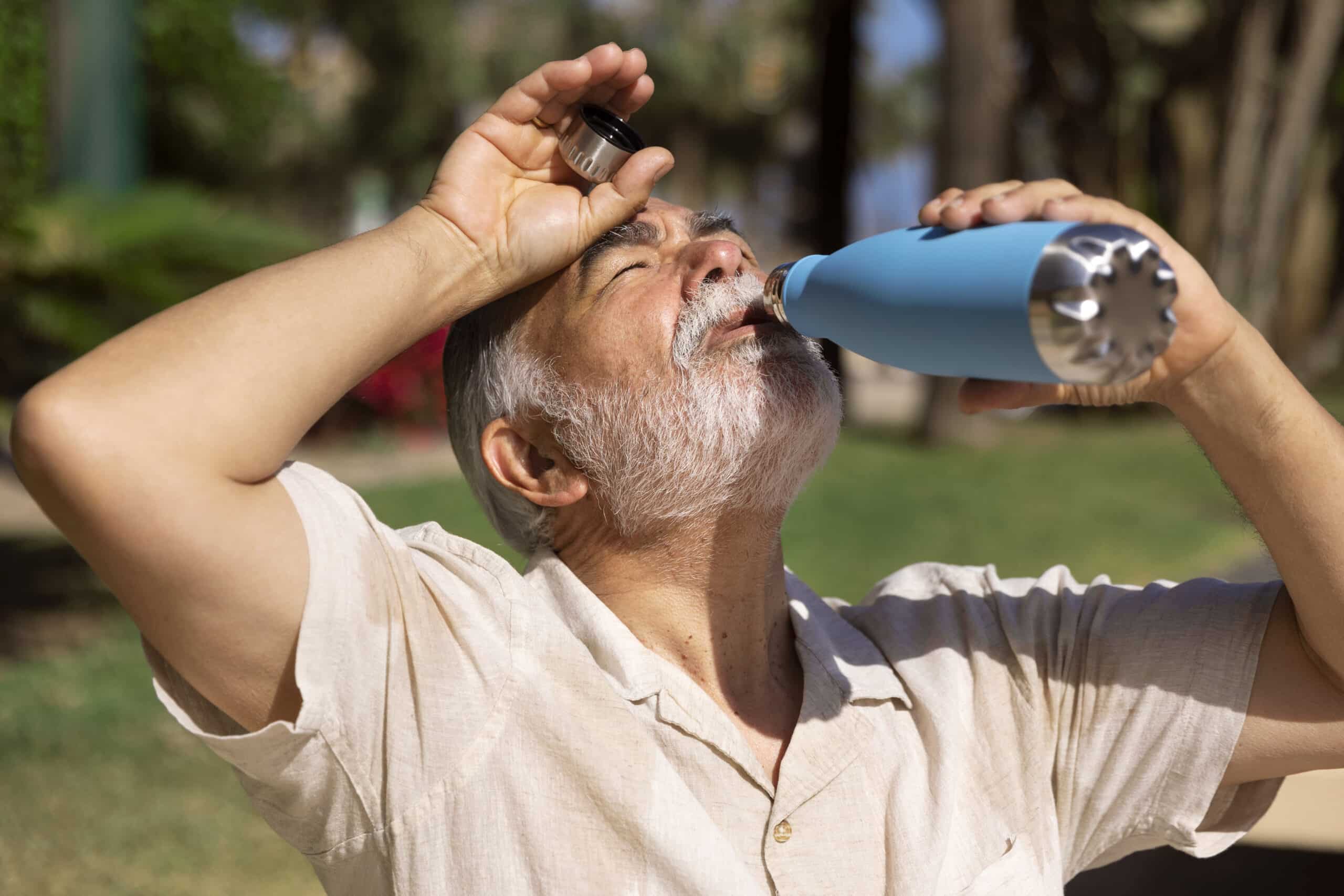Welcome to Medichem, your trusted source for high-quality first aid supplies. It’s not often in Ireland that we have extreme heat, but you still need to be careful on a summer’s day. This is most important when working outside or doing sports on a hot day.
In this blog post, we’ll explore heat-related illnesses, focusing not only on heat exhaustion but also on its counterparts, heat cramps and heatstroke. Understanding the full spectrum of heat-related conditions is crucial for staying safe in high-temperature environments.
The Heat-Related Illness Spectrum
Heat-related illnesses come in various forms, with heat exhaustion being just one of them. It’s essential to be aware of these conditions to recognise their symptoms and take appropriate action. Let’s break down the different types:
Heat Cramps: Often considered the mildest form of heat-related illness, heat cramps manifest as muscle cramps, heavy sweating, fatigue, and extreme thirst. Prompt treatment can prevent them from escalating into more severe conditions.
Heat Exhaustion: This is the focus of our previous post. Heat exhaustion is characterised by symptoms like heavy sweating, dizziness, faintness, and a weak, rapid pulse. If left untreated, it can progress to heatstroke, which can be life-threatening.
Heatstroke: Heatstroke is the most severe heat-related illness and requires immediate medical attention. It occurs when the core body temperature exceeds 104°F (40°C) and can lead to permanent damage or even death. Symptoms include confusion, loss of consciousness, and the inability to drink.
Causes of Heat-Related Illnesses
Understanding the underlying causes of heat-related illnesses is essential for prevention. Here are the primary factors that contribute to these conditions:
Overexertion in Hot and Humid Weather: Strenuous physical activity in hot, humid conditions can hinder the body’s ability to cool itself through sweat evaporation.
Dehydration: Inadequate hydration reduces the body’s capacity to sweat and maintain a normal temperature.
Alcohol Use: Alcohol can disrupt the body’s temperature regulation mechanisms, making individuals more susceptible to heat-related issues.
Overdressing: Wearing excessive or tight-fitting clothing that doesn’t allow for proper sweat evaporation can lead to heat exhaustion.
Risk Factors Associated with Heat-Related Illnesses
Certain individuals are more susceptible to heat-related illnesses due to specific risk factors:
Age: Infants, young children, and adults over 65 are at higher risk, as their ability to regulate body temperature may be impaired.
Medications: Certain medications, such as beta blockers and antihistamines, can affect the body’s ability to stay hydrated and dissipate heat.
Obesity: Carrying excess weight can disrupt the body’s temperature regulation mechanisms.
Sudden Temperature Changes: Travelling from a cold to a warm climate or experiencing an early heat wave in your area can increase the risk of heat-related illnesses.

Preventing Heat-Related Illnesses
Prevention is the best defence against heat-related illnesses. Here are some proactive steps you can take:
Wear Appropriate Clothing: Choose loose-fitting, lightweight clothing to allow your body to cool efficiently.
Sun Protection: Protect your skin from sunburn, which can affect your body’s cooling mechanisms. Use sunscreen, a wide-brimmed hat, and sunglasses.
Stay Hydrated: Drink plenty of fluids to help your body maintain a normal temperature.
Be Cautious with Medications: If you’re on medications that may affect heat regulation, take extra precautions in hot weather.
Never Leave Anyone in a Parked Car: Avoid leaving anyone, especially children, in a parked car in warm or hot weather.
Time Your Activities: Plan outdoor activities during the cooler parts of the day and take breaks to rest and rehydrate.
Acclimate to Heat: Gradually adapt to hot weather if you’re not used to it, as your body needs time to adjust.
Heat-related illnesses are a serious concern, but with the right knowledge and preventive measures, you can stay safe in high-temperature environments. Understanding the spectrum of heat-related conditions, their causes, and risk factors is essential for protecting your health. Stay tuned for more informative content from Medichem, your trusted source for first-aid supplies. If you have any questions or need assistance, please don’t hesitate to contact our team. Your well-being is our top priority.


